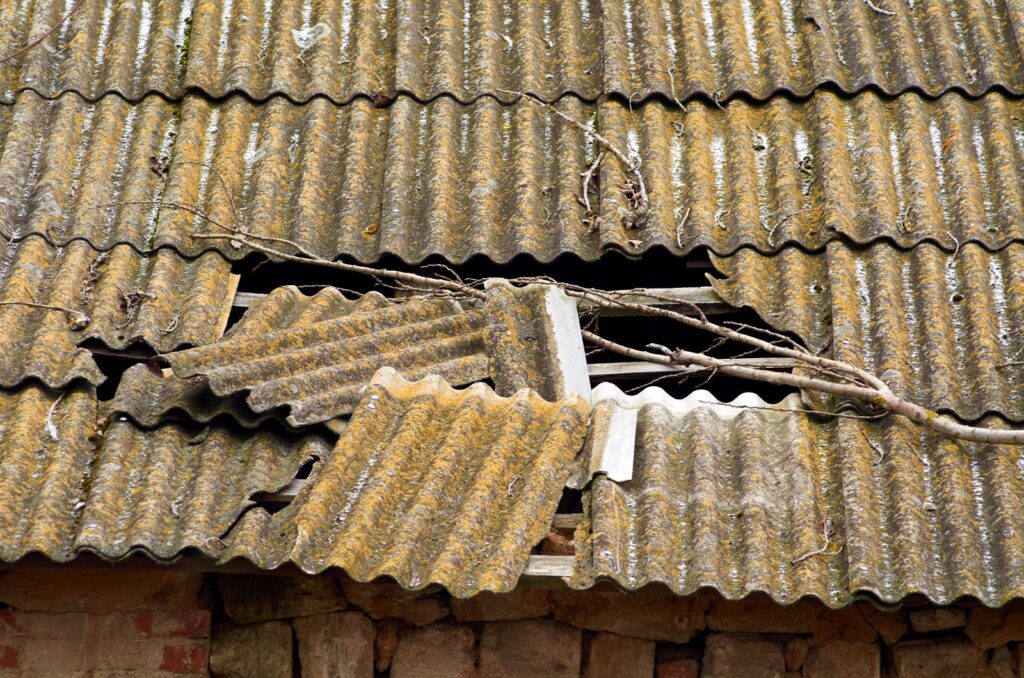Storm resilience “more important than ever” as trio of storms rack up £92m damage
9th May 2023
NFU Mutual is urging farmers to prepare for storms in advance as its customers have suffered damage in excess of £92 million during Storm Dudley, Eunice and Franklin last year, the rural insurer’s latest figures have revealed.
The trio of storms hit the UK in quick succession last February with sweeping winds of over 120mph that ripped trees from the ground, tore down power lines, damaged buildings, and flung furniture and debris across the air.
Many areas were also struck by flooding and disruptions to transport systems, with the South West and South East of England and parts of Wales most severely affected. The extreme weather events saw millions of Britons suffer extensive damage to their homes, businesses, and property, resulting in more than 13,000 claims received by NFU Mutual.
While the average cost of storm damage reported to the rural insurer was in excess of £7,000, some claims ran into tens or hundreds of thousands of pounds. To mitigate the impact of extreme weather on the livelihoods of those living in the countryside, the insurer is offering advice on how to become storm resilient.
Jon Bird, property claims manager at NFU Mutual, said: “Now over a year on from Storms Dudley, Eunice and Franklin, we can clearly see how destructive periods of extreme weather can be.
“Over 13,000 NFU Mutual customers suffered damage as a result of the storms, ranging from missing roof tiles to entire outbuildings being destroyed.”
While customers with smaller claims were able to benefit from immediate cash payments, last year’s storms demonstrated it is now “more important than ever” to ensure properties are storm resilient and homeowners have protocols in place in the event of extreme weather, Mr Bird added.
“That’s why we’re urging everyone to clear, fix, fasten and repair regularly to protect themselves from the worst of extreme weather before it is forecast.
“It also means considering how home or property improvements, such as laying driveways or artificial grass or adding outbuildings and ornaments, will stand up in extreme weather. It is essential that excess water has somewhere to drain and that ornaments and outbuildings can be secured in the event of high winds.”
NFU Mutual’s storm resilience checklist
To help farmers prepare for a potential repeat of last year’s storm trio, NFU Mutual has assembled a storm resilience checklist with useful tips to improve farm safety all year round:
- Make sure all doors and windows can be securely closed.
- Prepare for power cuts: Have torches and batteries to hand and make sure any generators are ready to use if required. If you are using candles, make sure you use them safely and extinguish when leaving the room, and make sure nothing hangs over the candles.
- Inspect your property and make repairs to things like loose fence panels or gates.
- Make sure gutters are not leaking and are clear of leaves and other debris.
- Have a space to put loose outdoor furniture like garden chairs and trampolines. If you do not have an indoor space in which to put them, ensure you have a means of tying down or otherwise securing the furniture.
- Safely and regularly check that tiles, slates and roofing sheets are in place, securing any that are not.
- Regularly inspect trees on your property, removing loose or overhanging branches which may cause damage to your or others’ property in a storm.
- Repair or unblock any faulty drains as soon as you notice they are not draining.
- Consider the impact of things like a paved or concreted drive, or artificial grass, on drainage. Lack of drainage can contribute towards flooding.
- If you have a garage, clear a space for your vehicle in the event of a storm. If you do not have a garage, plan where you can park vehicle during a storm – this should be away from any walls, fences or branches which could fall and damage the vehicle.
- Protect and lag water pipes in vulnerable areas and know where the water supply is so that you can turn it off in the event of burst pipes.
- Stay alert for Met Office weather warnings in your area.
- Have your insurer’s emergency helpline number available.
Additional advice for business owners
In addition to the above, business owners can:
- Ensure you have emergency contact details for employees to maintain contact during an extreme weather event.
- If you have company vehicles, make sure these are parked away from walls, fences or branches which could damage the vehicles.
- Make sure outdoor signage or displays can be secured or brought inside.
- Ensure you have adequate signage warning customers of things like wet floors that may be more common during extreme weather.
- Prepare an emergency evacuation route in the event of unexpectedly severe weather.
- Ensure central heating will come on during freezing weather to avoid frozen pipes, and consider procuring sandbags to protect your business in the event of a flood.
- Make sure you have a way of communicating closures with customers.
- Consider transport routes to the business and whether traveling will be safe and practical.

